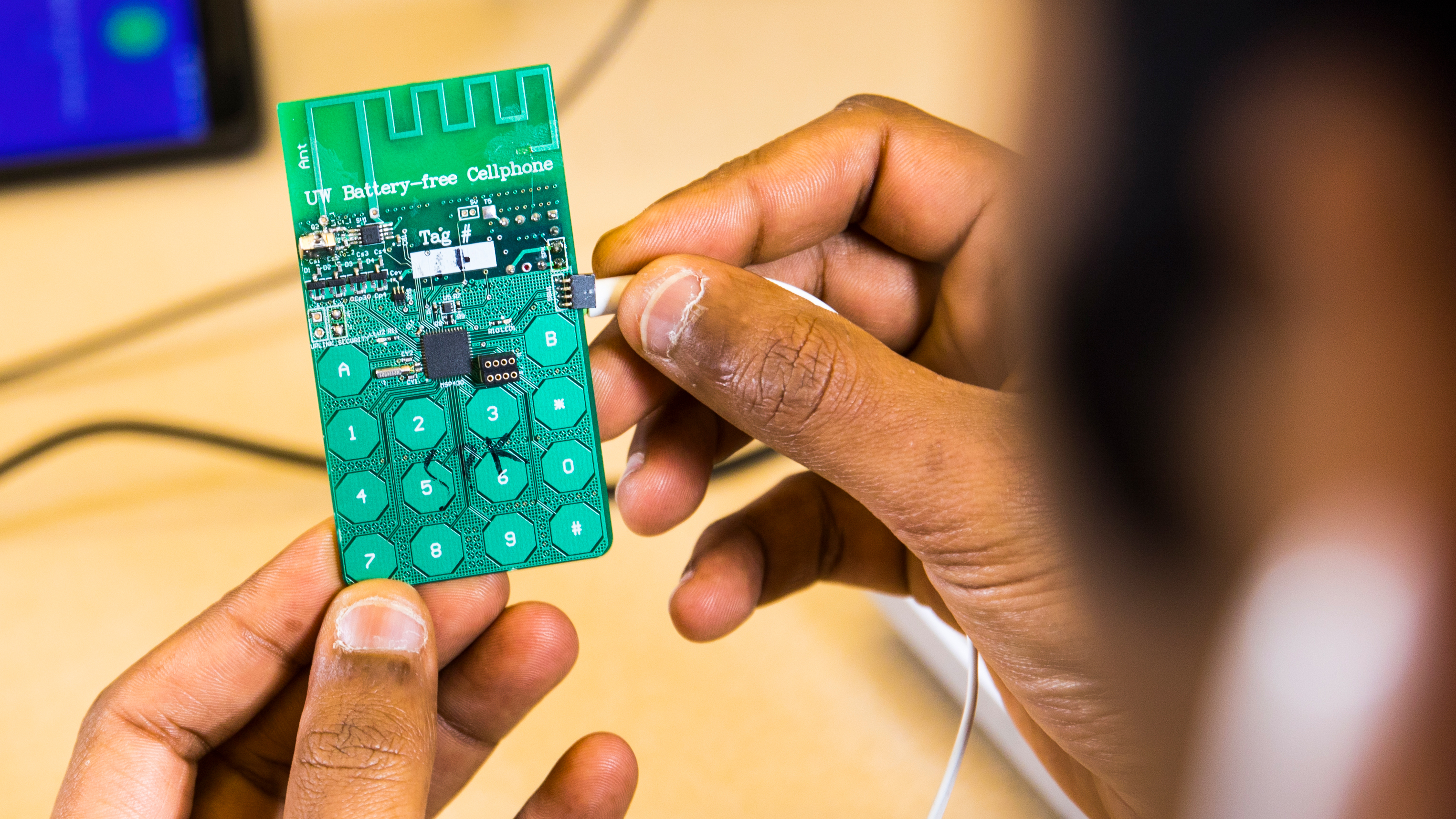This phone needs no battery

With festival season in full swing, many of you no doubt wonder on a regular basis why smartphone batteries aren't getting better. The answer is simple - they are getting better, but manufacturers choose to use that power to bump up specs rather than delivering improved battery life.
Now, however, engineers at the University of Washington have taken a very interesting leap into a totally different way of powering a phone. They've used commercial, off-the-shelf components to design a cellphone that can make and receive calls without a battery at all.
“We’ve built what we believe is the first functioning cellphone that consumes almost zero power,” said Shyam Gollakota, an associate professor in the Paul G. Allen School of Computer Science & Engineering at the UW and co-author on a paper describing the technology.
Instead, the phone pulls power from its environment - either from ambient radio signals harvested by an antenna, or ambient light collected by a solar cell the size of a grain of rice. The device consumes just 3.5 microwatts of power during use.
“To achieve the really, really low power consumption that you need to run a phone by harvesting energy from the environment, we had to fundamentally rethink how these devices are designed," said Gollakota.
Analog to digital
The biggest step was eliminating the analog-to-digital converter that turns your voice into data. Instead, they took advantage of tiny vibrations that happen in a microphone when a person is talking into it, or a speaker when someone is listening.
An antenna converts that motion into radio signals in a way that uses almost no power. The only downside is that the user has to press a button to switch between speaking and listening modes. In testing, the team was able to make calls and even use Skype.
Sign up for breaking news, reviews, opinion, top tech deals, and more.
Right now the battery-free phone needs a custom base station to transmit and receive calls. But the team says there's no reason why the technology couldn't be integrated into standard mobile network infrastructure.
“You could imagine in the future that all cell towers or Wi-Fi routers could come with our base station technology embedded in it,” said co-author Vamsi Talla, a former UW electrical engineering doctoral student and Allen School research associate.
“And if every house has a Wi-Fi router in it, you could get battery-free cellphone coverage everywhere."
